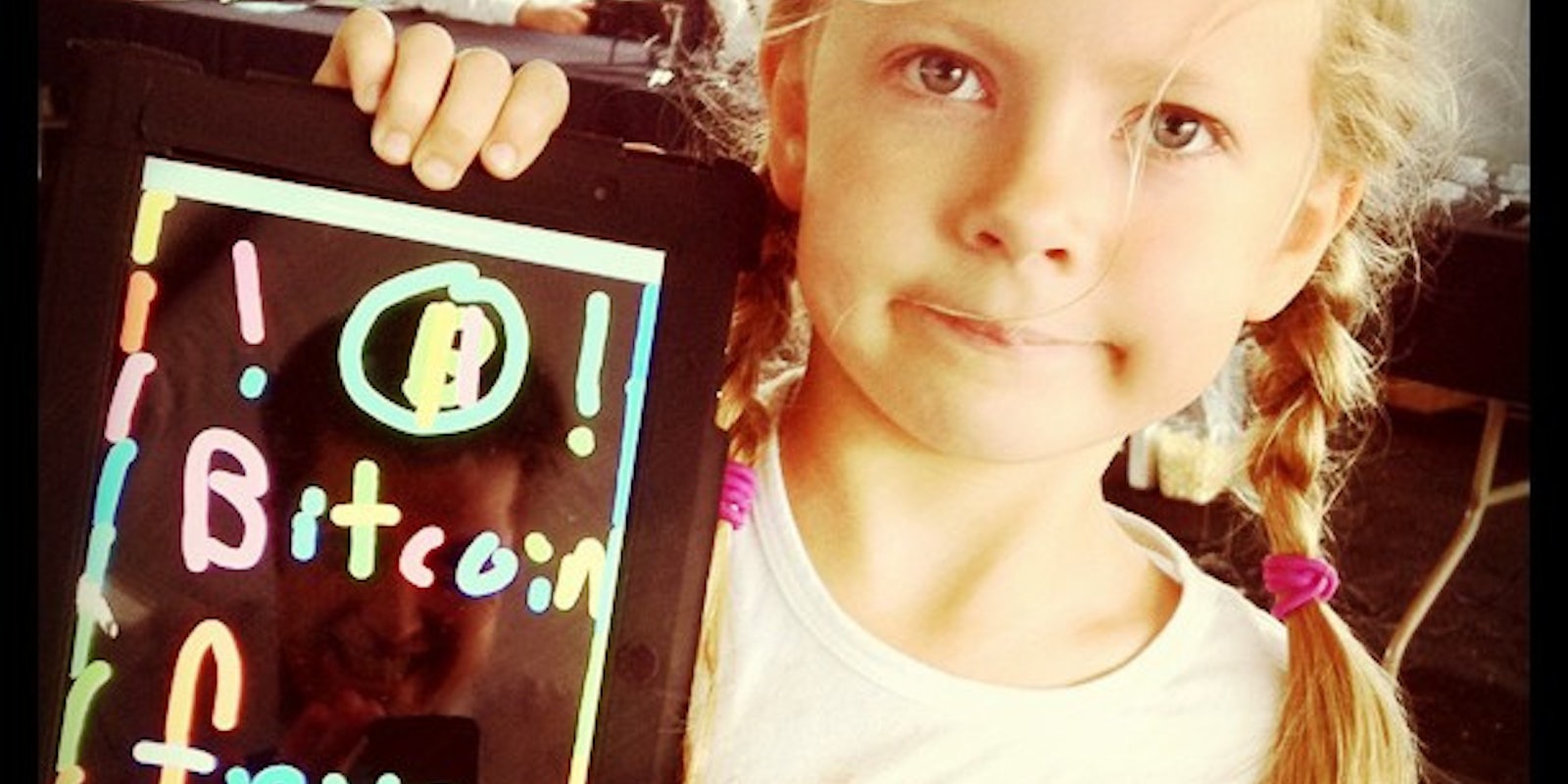Is this the week that bitcoins went mainstream?
Given the current economic crisis in Cyprus, companies who are looking to make the rogue currency more mainstream have decided to place the first bitcoin ATM on the island. Given limits on cash withdrawals in the country, if they can get the ATM in place fast enough, it may soon have a near monopoly on automatic telling.
If ATMs aren’t mainstream enough for you, what if your company reimbursed you for last week’s client dinner in bitcoins? I mean after all, you can buy a pizza with bitcoins. The first one cost $750,000, but I understand the first widget is always the most expensive.
***
Unless your head was under a rock, or your iPhone was broken, you know that the Supreme Court is now debating the Defense of Marriage Act. The Internet, it appears, is largely on the side of marriage equality—e.g., allowing same sex couples to wed.
Or perhaps it’s just that marriage equality is more visible online. It all began, as it often does, with George Takei. Takei encouraged his followers on Facebook to adopt a signal of solidarity created by the Human Rights Campaign and change their profile pictures to a red and pink equal sign.
“Friends,” he said, “you can all say you know at least a gay couple who are married— George and Brad Takei. I hope you value our marriage as equal to any other between two loving adults. Thank you.”
Even the Golden Girls came out online with a similar message.
Takei’s post got more than 144,000 likes. However, the Internet won’t leave well-enough alone—there is no lily it cannot gild. Soon, new versions of the red equals sign were appearing all over, featuring all your Internet favorites, from bacon to cats to corgis.
In real life, both sides of the debate were more clearly represented; among those that support marriage equality, the Internet was there in spirit (and smartphones). The protests outside the Supreme Court seemed to be playing to the Internet as much as to the justices inside.
***
The Internet seems to be in favor of freedom pretty much wherever it can find it. The copyright debate returned to the fore this week from a variety of sources, some we’ve come to expect, and some a bit of a surprise.
Sen. Orin Hatch, a copyright hawk, called for a U.S. copyright ambassador. The bill has no chance—but what Congress is all too aware of, and what the rest of us should pause to consider, is that the U.S. economy is highly dependent on international copyright. Media and entertainment is one of the country’s largest exports, supporting hundreds of thousands of jobs.
The debate went beyond the beltway this week, when a fairly unknown band, Ghost Beach, took over a billboard in Times Square to ask people to tweet whether they’re in favor of or against piracy. Unsurprisingly, the band is against it. On the other hand, most of Twitter (if their poll is any indication) is for it.
***
Whether it’s copyright or something else, laws governing the Internet are so far behind technology and practice that the likelihood is that you’ve already broken at least one of them.
It is painfully obvious that the rules of the Internet are insufficient, just as it was clear at the OK Corral that the same was true of the Wild West.
With the Internet’s unruliness showing up right on the government’s front stoop—as it debates marriage equality, or with hundreds of American jobs at stake—is it any wonder they’re trying to get it under control?
And yet, a little out-of-control is good. Look at bitcoins. As I write this, bitcoins are spiking, closing in on the $100 mark. Is that because we can trust an impersonal system more than we should trust governments to manage our money supply? Or is because people who don’t know what they’re doing are panicking?
If it’s the first, then bitcoins might be the world’s next reserve currency. The dollar ain’t what it used to be, but its saving grace is that there’s no viable alternative—unless bitcoins are a viable alternative. If the reserve currency does shift, it will be a seismic shift in the world economy and balance of power, similar to the fall of the British Empire, which was accompanied by the shift in the reserve currency from Pounds Sterling to U.S. Dollars. Shifts like that earlier one, from national to national currency, have happened plenty of times. What happens when the shift is not to a national currency but to another kind of currency altogether? I’m not sure anyone knows.
To be fair, the Internet is mad, and there is plenty that ought to be reined in (even Alexis Ohanian agrees). It is no different than any other frontier; where anything goes, we often get the worst that humanity has to offer. And yet it’s also where we push things forward. Both are happening right now. As we of the Internet mature, we must do so carefully—and not too much. Because it is, after all, a somewhat adolescent impulse to rush to change the world. But without that impulse we’d all still be slaves, worshipping pharaoh.
Photo by Phelan Riessen/Flickr


